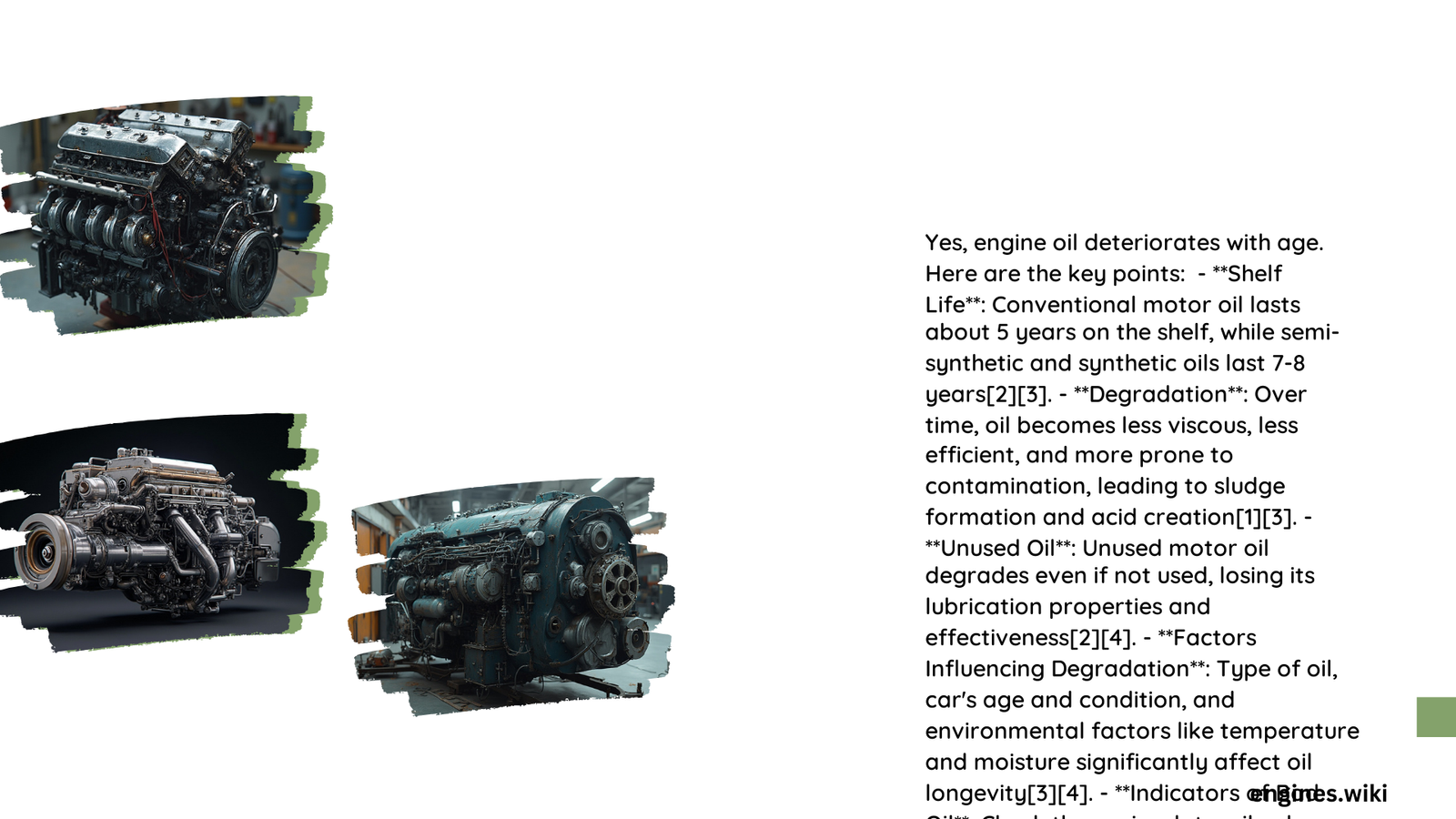Engine oil is a critical fluid that undergoes significant chemical transformations over time, potentially compromising its lubricating and protective capabilities. As oil ages, it experiences oxidation, viscosity changes, and contamination that can dramatically impact engine performance and longevity. Understanding these deterioration mechanisms is crucial for vehicle owners seeking to maintain optimal engine health and prevent costly mechanical failures.
What Causes Engine Oil to Deteriorate?
How Does Chemical Composition Change Over Time?
Engine oil deterioration is a complex process involving multiple interconnected mechanisms:
Oxidation Process
- Molecular Breakdown: Oxygen interaction causes molecular restructuring
- Temperature Impact: Higher temperatures accelerate oxidation rates
- Chemical Byproducts: Formation of acids, sludge, and harmful residues
| Oxidation Stage | Characteristics | Performance Impact |
|---|---|---|
| Initial Stage | Minimal molecular changes | Slight performance reduction |
| Advanced Stage | Significant chemical transformation | Substantial lubrication degradation |
| Critical Stage | Complete molecular breakdown | Potential engine damage |
What Factors Accelerate Oil Deterioration?
Several critical factors contribute to engine oil aging:
- Temperature Extremes
- High temperatures increase chemical reaction rates
- Low temperatures cause viscosity changes
-
Thermal stress breaks down oil molecules
-
Contamination Sources
- Combustion byproducts
- Metal wear particles
- Dust and environmental debris
- Moisture infiltration
How Long Does Engine Oil Typically Last?
Conventional Oil Lifespan
- Average: 3,000-5,000 miles
- More susceptible to rapid degradation
- Requires frequent replacement
Synthetic Oil Durability
- Average: 7,500-15,000 miles
- Enhanced molecular stability
- Resistant to thermal and oxidative breakdown
What Are the Warning Signs of Oil Deterioration?
Key indicators include:
- Dark, murky oil color
- Increased viscosity
- Visible sediment or sludge
- Burning smell
- Reduced engine performance
How Can You Prevent Premature Oil Degradation?
Recommended maintenance strategies:
- Regular oil analysis
- Consistent oil change intervals
- Use high-quality synthetic oils
- Monitor driving conditions
- Maintain proper engine temperature
Technical Insights into Oil Molecular Changes
Viscosity Transformation
- Initial viscosity: Stable lubricating properties
- Intermediate stage: Gradual molecular expansion
- Advanced stage: Significant viscosity deviation
Economic Implications of Oil Degradation
Potential Cost Breakdown:
– Routine oil change: $50-$100
– Engine repair due to oil neglect: $1,500-$4,000
– Complete engine replacement: $4,000-$8,000
Conclusion

Understanding how engine oil deteriorates with age empowers vehicle owners to make informed maintenance decisions, ultimately protecting their automotive investment and ensuring optimal engine performance.
